Four Champions tell us how they use the internet to improve their businesses
How do you access the internet?
Paul Fisher: I use a smartphone, laptop, tablet and desktop.
Sunder Sandher: I use my iPhone and laptop.
Mark Johnson: I use a desktop computer in the store, and I also access the internet on my mobile phone when I’m out and about.
Dan Cock: I have a Blackberry, which is really handy for accessing the internet, but I mainly use the PC in the store.
Does your business have its own website or Facebook page?
Paul: Yes, we have a website set up, which also contains links to our Facebook page and Twitter account.
Sunder: I set up a personal Facebook page about nine months ago which I use for promoting the store, as well as for personal use. Leamington Spa has it own community Facebook page, too, which I frequently post on. Every week I link Londis promotions onto the Leamington Spa page.
Mark: We’ve had a website operating for a few years now. It lists information on our product range, including alcohol, greetings cards and fresh cut flowers. We pay for it to be no lower than third in the Yell.com listings for off-licences in the North-west. It’s good for people to see photos of the store posted on it as that way they can see that it’s a genuine business.
Dan: We started off with a website, but as time goes on the website has become just a basic resource with information on where we are located and what we stock, and the content isn’t refreshed that regularly. We now link it to our Facebook page instead, which we post new information on every day. With Facebook, you know your updates will be seen by people, whereas with the website people have to make the effort to specifically search you out.
When were you last online for business purposes, and what did you do when you were logged on?
Paul: I was online only today, as I logged on to our online shop and printed off an order that had been made. I emailed the customer to say that their goods would be dispatched tomorrow. I then logged into our courier website and booked a slot for the package to be collected today and delivered tomorrow.
Sunder: I was on the new Convenience Store website yesterday (www.conveniencestore.co.uk), catching up on the latest industry news, information and opinions.
Mark: I was online yesterday checking my emails and looking at what’s going on in the industry. I’ve been keeping an eye on what’s happening when it comes to developments in the Scottish alcohol legislation to see how it might play out in England and affect me.
Dan: I was online only an hour ago - I can’t cope too well without it! The last thing I did was to contact another shop, which is up the road from ours, on Twitter. The owner has just had a second Costa coffee machine put in and I was tweeting him to ask about how it was going.
How do you use the internet on a day-to-day basis to manage your business?
Paul: I check our bank statements, download invoices from the Nisa website and check product availability and pricing online. I also manage our Twitter account from my smartphone and do most emailing from my phone or iPad.
Sunder: I’m always looking at different websites for ideas - it’s a must. I update my Facebook page every day, too. I’ll also read newsletters on the Londis website and look at planograms, and they inform us of promotions via e-alerts.
Mark: I use the website as another stream of business, although I do need to manage the website better to make it more efficient. I also download product images from the internet and use them to create pos material that is displayed on digital photo frames in-store.
Dan: I use Twitter for behind-the-scenes communications to connect with the industry. Trade organisations put snippets up there and it’s good for contacting suppliers. Last week I tweeted a local butcher to tell him we’d like to start stocking his meat. I also use the internet for reading industry news, and I order as much stock as I can online. I also handle invoices electronically, and download Premier and suppliers’ pos material.
Do you see the internet as a communication tool, or is there an opportunity to sell online?
Paul: There is a huge trend towards shopping online. However, we have found that shopping for food is a very personal thing and there is no substitute for your own judgement when it comes to choosing fruit and veg, fresh meat and cheese and so on. I think that’s why the big four supermarkets are losing money on their online shopping activities. There’s a huge demand for relevant information on Facebook, though, and retailers need to make it easy for customers to see their content so that they can make the most of the new communication streams.
Sunder: I don’t sell products online, but I market the store online. If I have any promotions running then I’ll photograph them on my iPhone and put them on Facebook. I posted that I was stocking fireworks at half price and someone from an hour’s drive away bought £300-worth!

Mark: There’s an opportunity for it to be both. We have had sales from America and Australia.
Dan: We use it for both. We post information on Facebook regarding new products, opening hours and events, but we also post community info such as details about theft. I also use Facebook to poll customers. For example, I asked them what opening hours they’d like over Christmas.Has the internet had any negative effects on your business?
Paul: I created a profile on Foursquare (a location-based social networking site) about two years ago when I first started tweeting. Someone wrote a bad review of us on there without having been to the store, so I contacted them and they wrote another review, which was slightly better. It made us look very bad, even though there are not many Foursquare users in the UK. First impressions still count and since then we have only had about six reviews from real customers, all very positive.
Sunder: No, it’s been brilliant! I can’t see any negatives because the time spent online is very pro-active for the business.
Mark: I don’t think there are any downsides, really. In fact, you can even use your competitors’ websites to your advantage. I often use Tesco’s online price check facility to show customers that our products are cheaper!
Dan: The only downside I can see is that we are all so reliant on the internet that if you lose connectivity, you’ve had it! We’ve got a second broadband connection in place in case the main one goes down.
How do you plan to use the internet to improve your business in the future?
Paul: I use LinkedIn to connect with other retailers and let suppliers know what we are up to. We send out a newsletter via email (mail chimp) every month which goes out to about 1,000 customers. I find forums useful if everyone is asking and answering questions. However, a direct email or letter will always harvest better results.
Sunder: I’ll continue to concentrate on Facebook, and maybe try out some customer opinion polls.
Mark: We’re planning to launch a Facebook page this year to communicate with customers.
Dan: I think we need to capitalise more on e-marketing. I’d also like to look at sending vouchers to customers’ phones - everyone has smartphones these days, so it makes sense.
Are convenience retailers making the most of online opportunities?
Paul: No. We need help from our suppliers to harness the potential of online retailing, communication and buying.
Sunder: More retailers could definitely be getting online. The main reaction I get from other retailers when I talk about using Facebook is that they don’t want the whole world to know what they’re doing. But my view is that if you’re going to be part
of the community, then you should want people to know what your background is and what you are up to.
Mark: Probably not. We all get complacent and moan about the market place, but if you’re not pro-active you’ll get left behind. These days, the internet is as important as having a till.
Dan: Not at the minute. Things are changing so quickly. No one used smartphones and Facebook a few years ago, and now they use them all the time. I think if retailers did embrace it, they’d see a lot more money in their tills. And it’s not just about the sales - it’s about connecting with your community. • Do you see the internet as a communication tool, or is there an opportunity to sell online?
Paul: There is a huge trend towards shopping online. However, we have found that shopping for food is a very personal thing and there is no substitute for your own judgement when it comes to choosing fruit and veg, fresh meat and cheese and so on. I think that’s why the big four supermarkets are losing money on their online shopping activities. There’s a huge demand for relevant information on Facebook, though, and retailers need to make it easy for customers to see their content so that they can make the most of the new communication streams.
Sunder: I don’t sell products online, but I market the store online. If I have any promotions running then I’ll photograph them on my iPhone and put them on Facebook. I posted that I was stocking fireworks at half price and someone from an hour’s drive away bought £300-worth!
Mark: There’s an opportunity for it to be both. We have had sales from America and Australia.
Dan: We use it for both. We post information on Facebook regarding new products, opening hours and events, but we also post community info such as details about theft. I also use Facebook to poll customers. For example, I asked them what opening hours they’d like over Christmas. How long do you spend online each day? Do you think this will increase in the future?
Paul: I spend about five hours online. I expect this to stay the same or increase in the future.
Sunder: I spend about 2½ hours a day online, and that’s only going to grow.
Mark: I spend 20 minutes a day on the internet. If I don’t limit it to that then before I know it I’ve zapped away three hours. I’d imagine I’ll spend more time on the internet in the future, but it depends on how efficiently I use it.
Dan: I spend at least an hour a day online in lots of little chunks of time. I think the time spent online will increase in years to come, but overall it will be a time-saving as it will save going back and forth with companies over the phone.















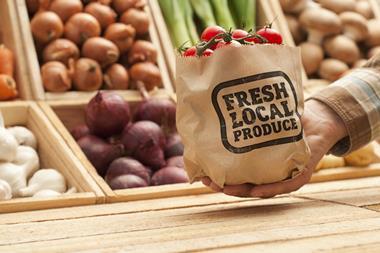
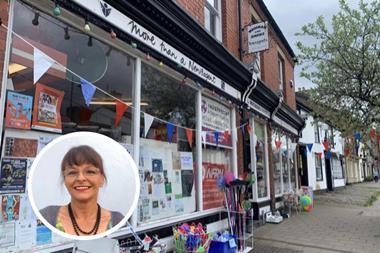
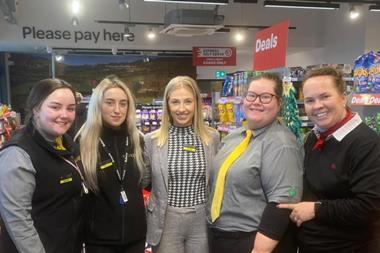
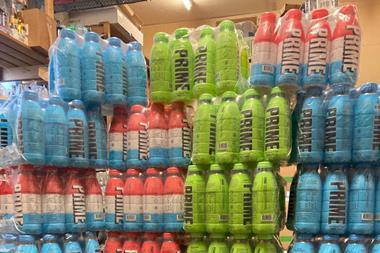

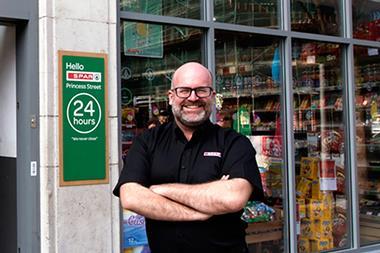
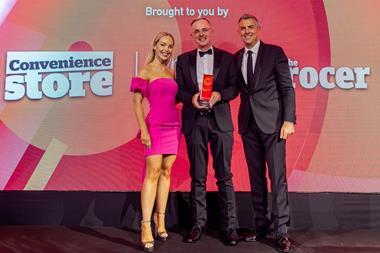
![C-Store_Champions_logo-CHOSEN[1] 2023](https://d2dyh47stel7w4.cloudfront.net/Pictures/380x253/6/5/7/301657_cstore_champions_logochosen12023_817064.jpg)




No comments yet